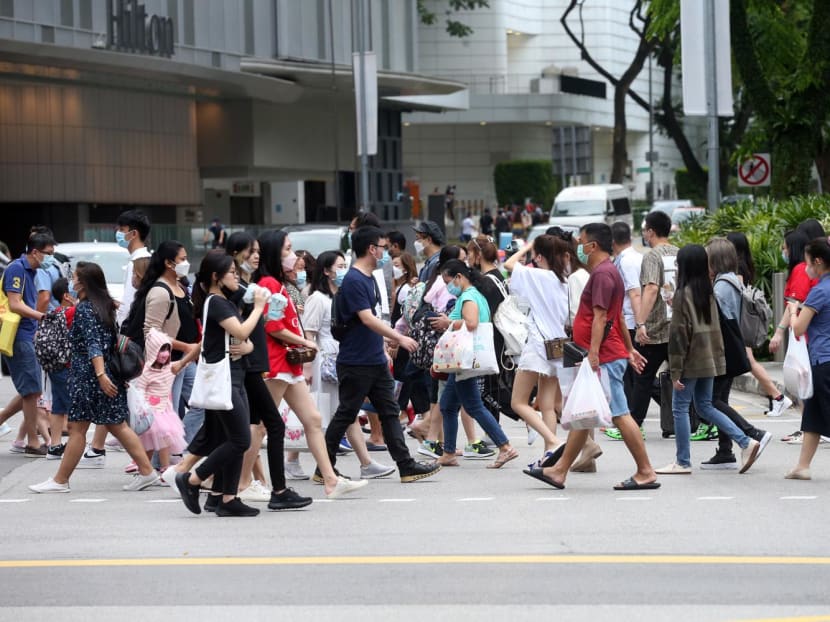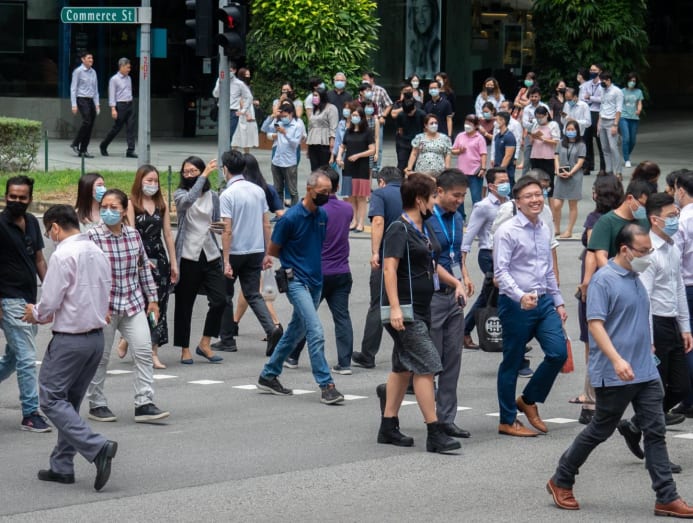Commentary: Is Budget 2024 an election budget? What's clearer is the need for a balancing act amid pressing challenges

This year’s Budget speech on Friday (Feb 16) drew much attention, both from those keen to see how the Government aims to address multiple challenges facing the country both internally and externally, as well as those looking to read any tea leaves which might shed some light on the next General Election, which must be held by November next year.
This was Deputy Prime Minister Lawrence Wong’s third Budget speech as finance minister, and the first since last year’s announcement that he will take over from Prime Minister Lee Hsien Loong before the People’s Action Party’s 70th anniversary in November this year.
For those looking for a sign of when polls might be called — there was no clear indication, which might not be surprising given that there could be another Budget to come in a year’s time, should elections be held later in 2025.
There was also little to remark upon regarding the projected size of this year's Budget (S$131.4 billion), which is comparable to last year's final figure (S$130.8 billion).
Instead, what is initially apparent is that the Government is looking to balance between a few pressing challenges: Domestic shifts and global headwinds, and the need to provide immediate assistance to Singaporeans impacted by rising costs, while also building a workforce and investment environment that will allow Singapore to remain relevant and attractive on the global stage.
As such, the various measures announced by Mr Wong on Friday should be assessed in that context, with any initial excitement about what may appear to be vote-winning “goodies” tempered with an understanding of their inherent longer-term effects.
DEALING WITH CURRENT PAIN POINTS
That said, there was also a clear recognition that Singaporeans need immediate assistance to deal with a difficult current environment.
Mr Wong took pains to highlight the turbulence that Singapore faces today, thanks to the geopolitical turmoil and conflict gripping the world even as the worst effects of the Covid-19 pandemic ebb.
The conflicts in Europe and the Middle East have thrown up roadblocks for global trade and supply chains, while their uncertain outcomes have spooked investors in the near term.
“We are living in a world which will become more violent, more fragmented and more unpredictable in the years to come,” said Mr Wong.
In order to help citizens adapt to this “messy world”, he announced several measures aimed at providing short-term relief.
These include a S$1.9 billion enhancement to the Assurance Package, which will provide Singaporeans with a mixture of cash, vouchers and rebates to cushion cost-of-living concerns.
The Goods and Services Tax (GST) Voucher Fund will also be topped up by S$6 billion to help those impacted by the one-percentage-point increase in the GST that kicked in at the start of 2024.
BOOSTING THE WORKFORCE WITH AN EYE ON FUTURE COMPETITIVENESS
Perhaps the clearest example of the Government’s intent to leverage immediate measures to build for a stronger future is the slew of updates unveiled to the SkillsFuture scheme under a new Level-Up Programme to better support mid-career workers.
All Singaporeans aged 40 and above will receive a S$4,000 SkillsFuture credit top-up in May. Younger Singaporeans will receive the same amount when they turn 40.
This S$4,000 will be more targeted in scope, and can only be used for selected training programmes, said Mr Wong.
While he acknowledged that this enhanced assistance is a key pillar of the new social compact the Government is seeking to forge with Singaporeans under the Forward Singapore road map, these efforts are also a critical aspect of ensuring the country retains its competitive edge globally.
It is hoped that this will be achieved by helping local workers adapt and acquire expertise and skill sets required by a constantly evolving economic landscape.
So while the dollar sums are eye-catching for individuals looking to improve themselves and their prospects for better jobs, the Government is clearly keeping a close eye on what is needed for the country to stay ahead in an increasingly competitive world, as Mr Wong also emphasised that a strong economy and a strong society are mutually reinforcing.

SIGNIFICANCE FOR LOCAL POLITICS?
Observers will be analysing the latest Budget speech for any clues on what lies ahead in the local political landscape in the coming months.
More insights will come as granular details of the measures are progressively announced in the days ahead and at the Committee of Supply debates in a few weeks.
In the meantime, the 2024 Budget seems to signal a continuation of the measured and long-term approach favoured by the incumbent People’s Action Party government.
Singapore’s national budgets have rarely functioned in isolation, and are meant to build on previous policies and initiatives. This has been a hallmark of the country’s approach to planning, which has been predicated on long-term political stability and predictability.
It seems clear too that Mr Wong will continue this approach as part of his leadership of the fourth generation (4G) team when he takes over the helm later this year. Nothing in Friday’s speech suggests an extreme change in direction to more populist, short-termism which afflicts many other countries with more volatile political scenes.
What has been established is that the 4G leaders are focused on responding quickly to challenges faced by Singaporeans, while also blending in the necessary efforts required for continued longer-term success for the country.
Mr Wong also reiterated a persistent theme that has emerged through the Forward Singapore exercise: The need for Singaporeans and other stakeholders to come forward to “lean in (and) lean forward”, and work with policymakers for a brighter future.
It now remains to be seen how this messaging resonates with citizens — both when they next go to the polls, and in the years ahead as the country collectively navigates increasingly rough seas.
ABOUT THE AUTHOR:
Nicholas Fang is a former journalist and Nominated Member of Parliament. He is the founder and managing director of strategic communications consultancy Black Dot, and is director of security and global affairs at the Singapore Institute of International Affairs.








